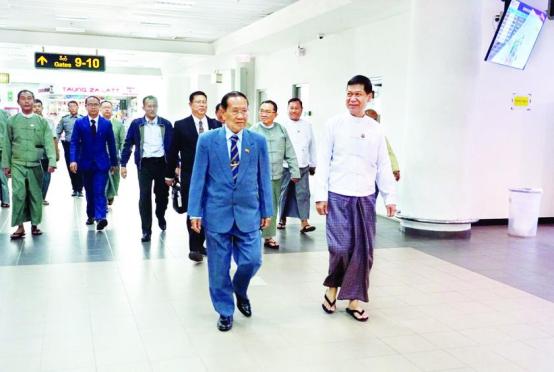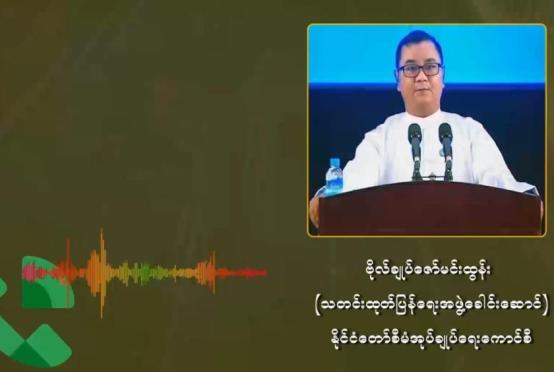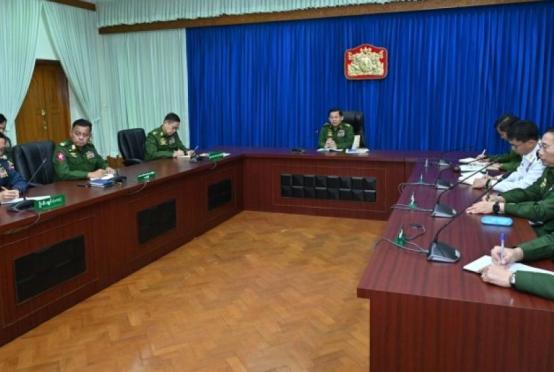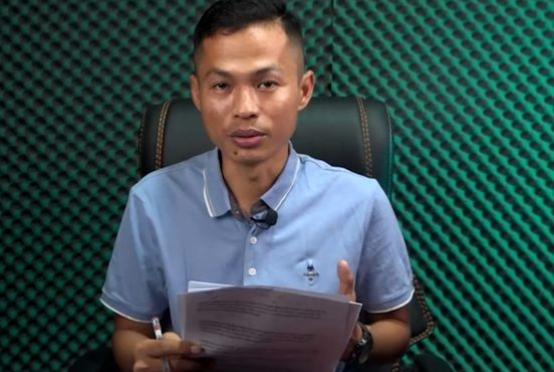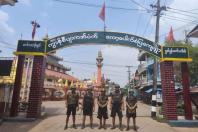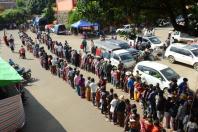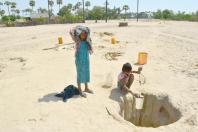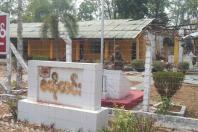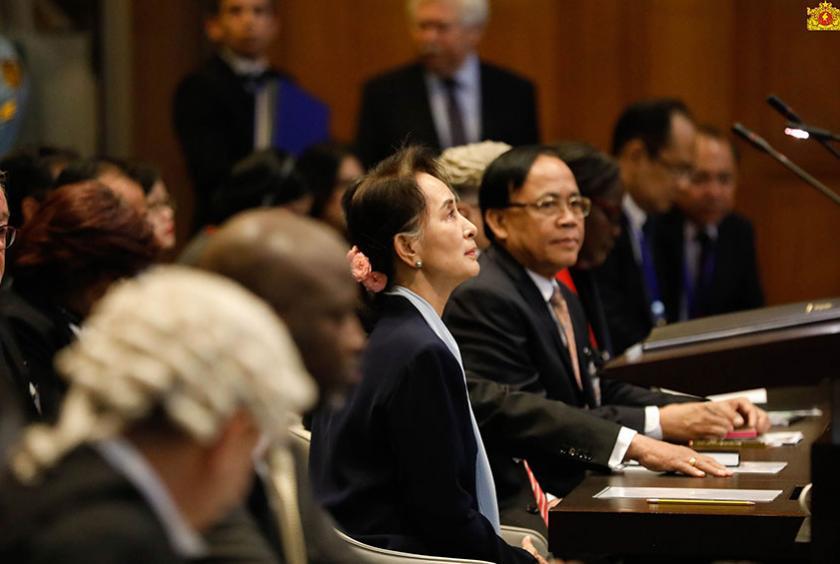
The first day of court hearings
International Court of Justice (ICJ) held the public hearings on the Gambia’s the request for the indication of provisional measures submitted by the Republic of the Gambia over the Crime of Genocide, at the Peace Palace in The Hague, the Netherlands on December 10.
The public hearing was attended by the Gambia team led by Abubacarr Marie Tambadou, Attorney General and Minister of Justice of the Republic of The Gambia and the Myanmar delegation led by Myanmar State Counsellor Daw Aung San Suu Kyi.
On December 10, the team led by Abubacarr Marie Tambadou, Attorney General and Minister of Justice of the Republic of The Gambia and the US legal team, submitted its argument at the first round of oral observations at the ICJ.
Abubacarr Marie Tambadou explained the facts why the Gambia filed a case against Myanmar. The Gambia filed a case against Myanmar as Myanmar violated the UN’s Genocide Convention and the Gambia has signed the Genocide Convention.
The Gambia also called for an end to genocide. Team leader of the Gambia Abubacarr Marie Tambadou said as an OIC agent, he visited Bengali refugee camps in Bangladesh. This lawsuit is for the rights of Bengalis.
Eight lawyers including fro the US legal team hired by the Gambia submitted its application based on evidences and the UN Fact Finding Mission’s report, for the provisional measures as there is a danger of ongoing genocidal acts.
Gambia pointed out the seven-point genocidal intents: (1) The Tatmadaw’s extreme brutality during its attacks on the Bengalis. (2), the organized nature of the Tatmadaw’s destruction, (3) the enormity and nature of the sexual violence perpetrated against women and girls during the clearance operations, (4) the insulting, derogatory, racist and exclusionary utterances of Myanmar officials and others prior, during and after the clearance operations, (5) The existence of discriminatory plans and polices, such as the Citizenship Law and the NVC process, as well as the government’s efforts to clear, raze, confiscate and build on land in a manner that sought to change the demographic and ethnic composition of Rakhine State, (6) the government’s tolerance for public rhetoric of hatred and contempt for the Bengalis and (7) The State’s failure to investigate and prosecute gross violations of international human rights law and serious violations of international humanitarian law.
A lawyer of the Gambia said the government failed to prevent the acts committed by Myanmar Tatmadaw. A case should be opened against Senior General Min Aung Hlaing at the ICC. The lawyer also pointed out the facts such as the killings and rape committed by the Tatmadaw and security forces. The lawyer accused the Union Enterprise for Humanitarian Assistance in Rakhine State (UEHRD) has been responsible for “large-scale confiscation of Bengali land” and “the bulldozing of burned Bengali villages, which is likely to have destroyed criminal evidence.” The UEHRD’s Chair now acts as an agent of Myanmar, in the proceedings. He also submitted the satellite image evidence about the destruction of 392 villages and 37700 houses by Myanmar Tatmadaw.
The lawyer also submitted the facts about the killings of more than 700 people by Tatmadaw in Mingyi village in Maungdaw, the satellite images showing the destruction of more than 400 buildings and the eyewitnesses about the killings of more than 300 villages in Kyatpyin village in northern Rakhine by soldiers, the razing of houses and rape.
In addition, the lawyer submitted evidence such as the immigration department’s motto, the State-owned media’s news coverage which leads to the spread of hate speech and the removal of the servicemen’s accounts including the Military Chief from Facebook and Twitter.
It is found that the Gambia mainly quoted the facts included in the UN Fact Finding Mission’s report. The Gambia side also accused that the Myanmar government is comprised of Tatmadaw leaders, and it shows that the government will not be held accountable for the Tatmadaw leader, using the poster with Daw Aung San Suu Kyi standing with three generals.
Gambia made an accusation that Myanmar government failed to penalize those who committed the genocide as crime. Bengalis in Rakhine State experience the basic human rights violations. The Gambia applied for the provisional measures as they may face danger of additional genocide.
It is found that The Gambia submitted its arguments sector by sector. Gambia’s arguments cover the lawyer’s opening argument, worrying conditions of continued genocidal acts Bengalis are facing and genocidal intents.
The second day of court hearings
Myanmar submitted its argument at the second-day public hearings at the International Court of Justice (ICJ) in the Hague, the Netherlands on December 11.
The arguments were submitted by Union Minister for Foreign Affairs Daw Aung San Suu Kyi, Professor William Schabas, Christopher Staker and Professor Pheobe Okowa.
Myanmar side argued that Myanmar government and Tatmadaw had no genocidal intents. The ICJ no needs to release the provisional measures for Rakhine State.
Myanmar’s arguments
In her argument, Daw Aung San Suu Kyi said there is no genocidal intents during the Tatmadaw’s military operations. She admitted the fact that it cannot be ruled out that disproportionate force was used by members of the Defence Services. Genocidal intent cannot be the only hypothesis.
Regarding the Gambia’s accusations of over a bloody 2017 military crackdown in which thousands of people were killed and around 740,000 Rohingya fled to neighbouring Bangladesh, Daw Aung San Suu Kyi said "Regrettably The Gambia has placed before the court a misleading and incomplete picture of the situation in Rakhine State.”
She argued that the army was responding to an attack by hundreds of Bengali militants in 2017.
“It cannot be ruled out that disproportionate force was used by members of the Defence Services in some cases in disregard of international humanitarian law, or that they did not distinguish clearly enough between ARSA fighters and civilians,” admitted the State Counsellor.
But she later goes on to add that Myanmar is continuing to investigate these matters, claiming that “Surely, under the circumstances, genocidal intent cannot be the only hypothesis.”
She also later highlights the decision made by the court, established to settle disputes between the UN members in 1946, on the Balkan Wars; a decision that saw ruling against genocide of civilians in the 1990s.
Likewise, Myanmar’s legal team also recalls previous Croatia-Serbia and Bosnia-Serbia cases to point out that there are no genocidal intent at work here.
“Thus, for the purposes of provisional measures, a “plausible claim” under the Genocide Convention must include evidence of the required specific genocidal intent. For it is this subjective intent that is the critical element distinguishing genocide from other violations of international law such as crimes against humanity and war crimes, for which in this case the Court obviously lacks jurisdiction,” said Lawyer Professor William Schabas, going onto point out the lack of the term ‘genocide’ even in the reports of the UN’s Fact-Finding Mission as well as Special Rappoteur Yanghee Lee’s reports.
Myanmar’s legal team also rebutted that due to the involvement of OIC and The Gambia’s blatant representation of the OIC, an organization neither beholden nor bound by the genocide convention, the court should dismiss the case entirely with Lawyer Christopher Staker pointing out that “Although The Gambia is the nominal applicant, these proceedings are in fact brought on behalf of the Organisation of Islamic Cooperation, the “OIC”. The Gambia has been tasked by the OIC to bring them, acting in its capacity as an OIC Member State and chair of an OIC organ, its ad hoc committee. Moreover, the proceedings are financed by a fund supervised by the OIC. While the OIC decided to bring this case as early as March this year, the earliest official reference we can find to the Genocide Convention as the basis of the claim is in August. And the Applicant’s lawyers were instructed to initiate proceedings a week before The Gambia even sent its 11 October Note Verbale to Myanmar.”
It was proposed to the court that international cooperation have been and are in the process of being carried out for both social and economic development of all within Rakhine State and that many of what The Gambia had pointed out is impractical in nature due to the ongoing battles with the AA, ultimately objecting to The Gambia’s appeal for a provisional measure as without sufficient reason.
The Third Day of legal skirmish
On the third day of the trial on December 12, both The Gambia and Myanmar had their final say to the ICJ.

Myanmar people at The Hague, Netherlands to support the State Counsellor as she is leaving the ICJ on December 10.
What did Gambia submit?
The Gambia essentially requested that systematic genocide and the intent to do so still persist within Myanmar, thus requesting Provisional Measures of the ICJ. They opened with explicit proof of what Myanmar’s legal team did not deny; the accusation of genocide itself. A point honed in by The Gambia’s Lawyer Paul Reichler as he goes onto list out things reported by the Fact Finding Mission that Myanmar did not deny.
He appealed to the court that accusations that Myanmar military’s efforts and clearance operations committed genocide with intent were not clearly objected, going onto call out Daw Aung San Suu Kyi for the lack of usage of words such as “rape” or “Rohingya” in her statement on December 11. Paul Reichler claims this is a clear sign of disregard and genocidal intent.
At this juncture, the ex-information minister Ye Htut posted on his social media page regarding this particular part of the hearing.
Ye Htut wrote;
1) There was no denial from Myanmar on accusations of brutalities committed on the Rohingya by the Tatmadaw, and Daw Aung San Suu Kyi herself admitted that the usage of disproportionate force cannot be ruled out.
2) Myanmar did not deny the accusation that the military systematically planned these crimes, especially the point that 392 Rohingya villages were either totally or partially destroyed by the military.
3) Both Daw Aung San Suu Kyi and the lawyers never said a word regarding accusations of sexual violence occurring in the clearance operations as not only they were undeniable, they were also uneasy to be spoken out loud.
4) Myanmar also did not deny accusations regarding racially discriminatory hate speech by Myanmar’s authority figures with Daw Aung San Suu Kyi herself admitting that “Leaders of States and relevant inter-governmental and non-governmental organisations should also be cognisant of their responsibility to express and affirm fundamental values. Feeding the flames of an extreme polarisation in the context of Rakhine, for example, can harm the values of peace and harmony in Myanmar. Aggravating the wounds of conflict can undermine unity in Rakhine. Hate narratives are not simply confined to hate speech – language that contributes to extreme polarisation also amounts to hate narratives.”
5) Myanmar also did not deny accusations of discriminatory plans and policies (citizenship law and process), land confiscations and bulldozing in order to geographically shape how minority groups live. Daw Aung San Suu Kyi said that birth certificates were being issued no matter the race or religion while ignoring that birth certificates do not equate to citizenship. Land-grab accusations were also ignored.
6) Myanmar did not and could not refute hate speech and discriminatory remarks against the Rohingya were not being taken action against by the government.
7) Myanmar put emphasis on denying the exclusion of genocidal intent in all that had happened in regards to accusations of state-sponsored breach of international human rights and humanitarian laws. But how will the military leaders, that stand directly accused of committing atrocities, handle the punishment of their own soldiers?
In regards to the Inn Dinn massacre, Daw Aung San Suu Kyi herself admitted that journalists that reported the issue were jailed while the soldiers responsible were punished but pardoned quickly after. She mentioned the Mansi military court but it wasn’t neither in Rakhine State nor afflicted upon the Rohingya. Is it also a coincidence that the Gutar Pyin military tribunal was formed two weeks after, in fact right before the hearing, The Gambia had filed its case at the ICJ?
On top of it all, one of Myanmar’s lawyers Professor Okowa herself admitted that the repatriation process of the refugees is a practical failure with only a scant amount choosing to return, agreeing that it was impossible for the Rohingyan to return in an honourable and safe manner. Gambia’s Paul Reichler also pounced upon Daw Aung San Suu Kyi’s refusal to say the word “Rohingya” except when spelling out the full name of ARSA.
Such were the words from the ex-information minister Ye Htut.
It should also be noted that Gambia used as reference the US commerce ministry’s sanctions imposed on the military’s chief Senior General Min Aung Hlaing, the Deputy Commander-in-Chief and four other top brass members for committing acts that breach human rights on ethnic communities living in Rakhine, Kachin and Shan States.
Myanmar’s rebuttal
It was pointed out by Myanmar’s Lawyer Professor Willian Schabas that Gambia’s main point of reference that is the UN Fact Finding Mission’s report, claiming that it was filled with inaccuracies.
One of his points was that despite both reports from the UN Fact Finding Mission and the AP claiming to have found mass graves with photographic evidence, there simply were not enough details.
He also went on to state that The Gambia is not in full understanding of the current situation within Myanmar, highlighting one of the evidence presented by The Gambia to be dated, as Myanmar’s legal team had submitted to the court a similar document that was nearest to the current date, which also reflects better the current state of affairs. He also mentioned that the UN Fact Finding Mission’s report did not explicitly state “clearance operations” in regards to updates posted by the now-defunct Facebook Page of Senior General Min Aung Hlaing.
Schabas also went on to remind the court that matters of citizenship verification and hate speech are not limited to Myanmar but all across the world.
Christopher Staker also reiterated and added upon his initial submission that The Gambia had not even attempted to answer his query; the amount of OIC funding and from which exact states, organizations or individuals were the funds going to The Gambia.
He also claim that in light of extant genocide convention laws, specifically article 8 and 9, and past cases put on trial at the ICJ, only Bangladesh should have the jurisdiction to put up a case and not Gambia.
Daw Aung San Suu Kyi, in her final oral submission to the court, requested of the ICJ to completely drop The Gambia’s case against Myanmar.
“Mr. President, Members of the Court, I now conclude by formally presenting to you the final submissions of Myanmar. These are as follows: “In accordance with Article 60, paragraph 2, of the Rules of Court, for the reasons given during the hearing from 10 to 12 December 2019 and any other reasons the Court might deem appropriate, Myanmar requests the Court: (1) to remove the case from its List; (2) in the alternative, to reject the request for the indication of provisional measures submitted by The Gambia,” said Daw Aung San Suu Kyi.
She also cited the usage of military judiciary system in countries such as the USA and Great Britain, claiming that “it is not disputed that Myanmar like the United Kingdom or the United States has a military justice system. The Constitution of Myanmar cannot and should not be ignored, if we are serious about establishing constitutional democracy and rule-of-law in Myanmar. International criminal tribunals take four to eight years to undertake investigations of core international crimes, sometimes longer. Just over two years have passed since the serious internal armed conflict against the ARSA, and the second court martial is now underway. The Gambia has not challenged the quality of the military justice in the Inn Din case, only the pardon, which many of us regret. The ongoing Gutar Pyin court martial in Buthidaung Township should be allowed to run its course. I am confident that there will be further courts martial after the submission of the final report of the Independent Commission of Enquiry in a few weeks.”
She also claimed that in undertaking democratizing of Myanmar, the “constitution of Myanmar cannot and should not be ignored,” telling the juries that their decision made with “the wisdom and vision of justice” will result in a fair judgement.
Strengths and Weaknesses
As of this article, the hearing that lasted from December 10 to 12, at the ICJ at The Hague, Netherlands, in regards to request for provisional measures submitted by The Gambia for alleged breach of the UN’s genocide convention, is over.
But the embers of worry still afflict hearts and minds of Myanmar’s people with an enormous amount of speculations and debate going on daily.
According to the BBC’s exclusive interview with international law expert Director Salai Ngun Cung Lian of Myanmar Institute for Peace and Security, Myanmar still has a strong case in fighting that they have yet to and do not plan to breach the genocide convention’s article 2 and 3.
“On the second day, Myanmar’s submission was pretty strong because 1) Myanmar can claim that they will not break article 2 and 3 of the genocide convention because I myself personally believe that they do not have that intent. It was a good submission,” said Doctor Salai Ngun Cung Lian.
He continued to state that Myanmar from that point on can proceed to deny The Gambia’s appeal for provisional measures.
“ The second reason is because since Myanmar isn’t breaching article 2 and 3 of the genocide convention, Myanmar has no need to accept The Gambia’s request for provisional measures. The way I see it, since there wasn’t a breach to begin with, there is no need to allow the aftermath to follow through,” said the Doctor Salai Ngun Cung Lian.
He also critiqued that The Gambia’s evidence was weak.
“I think that the UN council reports were ineffective because Myanmar refused them so they weren’t able to conduct investigations. It consists of interviews of those outside of the country, be it Thailand or Malaysia as well as things taken from Twitter and Facebook. The evidence they have in hand is very weak.”
Some evidence brought up by The Gambia in the three-days long trial at the ICJ were laughable, he continued.
“ In the three days, some evidence brought up by The Gambia are funny. For example, the picture where Daw Aung San Suu Kyi is seemingly standing together with the three Generals and made to look like it because they were all in accord with the same objectives to commit genocide and ethnic cleansing and so they took a picture. The way I see it, the judges are neither fools nor idiots. They are persons of great ability. They will decide to the best of their ability.”
What will be the verdict?
While the trial at the ICJ is now over, the judges will be requesting information from both Myanmar and Gambia throughout the month so that they will be clearly informed of matters before they come to a decision.
In the ICJ, it usually is a 15-Judge system but in the case of Myanmar and Gambia, both countries opted for one judge each, bringing the total count to 17.
For the court to come to a decision favouring Myanmar, at least nine judges must agree to it. If that happens, the ICJ will close the file on The Gambia’s case against Myanmar.
If things go the other way, Myanmar must adhere to the ICJ’s judgement. Whether the decision will be one that will be good or bad for Myanmar will be anxiously awaited by Myanmar’s people.
“They will convene and discuss the submissions over the three days and they will first decide whether Myanmar breached articles 2 and 3 of the genocide convention. Then they will consider the six requests by Gambia and reflect which requests are agreeable and which are not. No one can predict exactly what their decision will be because they take time to make their decisions,” said Doctor Salai Ngun Cung Lian.

